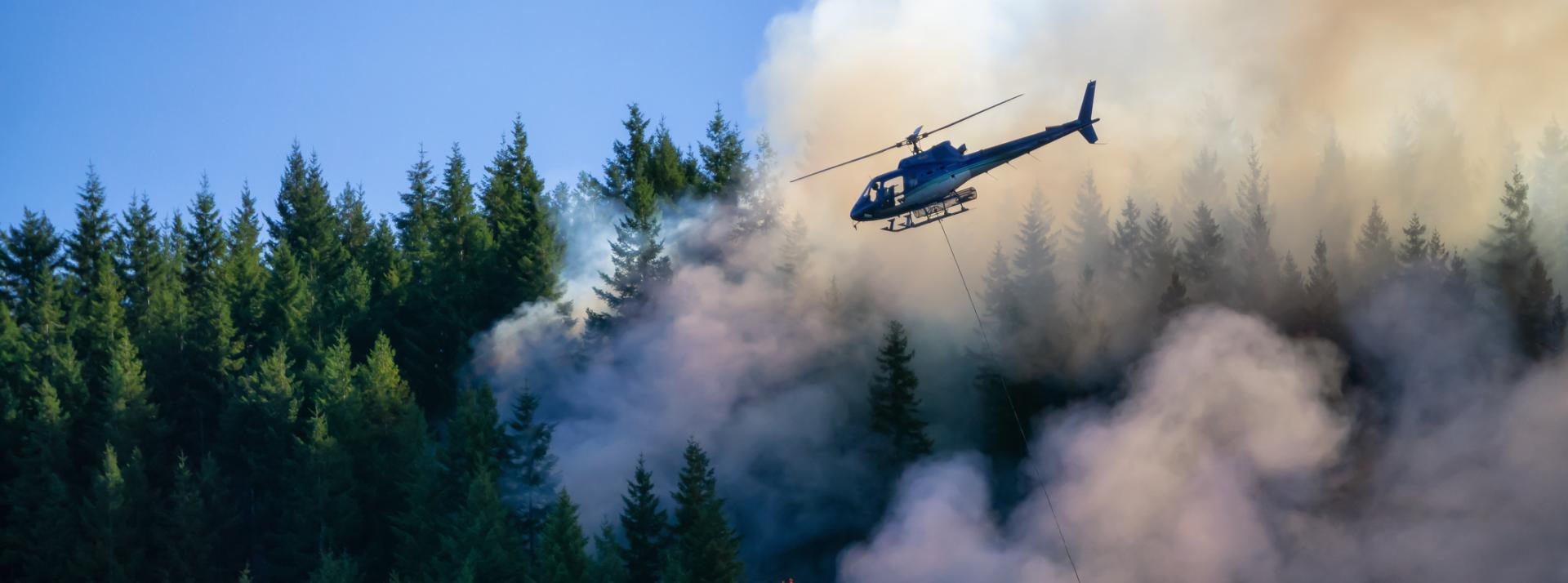Healthy environments and climate change
Good health depends on much more than health care. Environmental and social factors beyond health care and biology significantly affect our health and well-being. VCH Public Health works to prevent illness by reducing the extent to which these factors — known as determinants of health — impact the health of our communities.
In 2022, a new Public Health team was formed to focus specifically on physical and environmental determinants of health. Our Healthy Environments and Climate Change (HECC) team works to improve health outcomes linked to factors such as climate change, noise and air pollution, community design and more, through research, policy input and review and education.
Comprising a Medical Health Officer, climate change and health lead, environmental health scientists, planners, Environmental Health Officers and others, this team works closely with regional, municipal and non-governmental partners on plans, projects and policy proposals, incorporating lenses of environmental determinants of health and equity.
A major focus is to support action on climate change and health in our region, including though implementation of recommendations from the HealthADAPT project, a Health Canada-funded three-year project to advance health-focused climate change adaptation in our region.

In 2022, the HECC team:
-

Indoor temperature survey
Collaborated with the City of Vancouver and the BC Centre for Disease Control (BCCDC) to conduct an indoor temperature survey during heat events.
-

Recommendations for air conditioning, air filtration and decreased carbon emissions
Worked with the City of Vancouver to implement new recommendations for air conditioning, air filtration and decreased carbon emissions for new medium-large residential buildings.
-

Heat Check-in Support Framework
Created a Heat Check-in Support Framework for NGOs to guide check-in planning for people vulnerable to extreme heat.
-

Seasonal readiness planning
Supported VCH in seasonal readiness planning for future heat, smoke and weather events.
-

Air quality monitoring projects
Led or collaborated on air quality monitoring projects throughout our region.
In addition, the HECC team:
- Contributed to:
- TransLink’s Transport 2050 regional transportation plan
- Metro Vancouver’s Regional Growth Strategy (2050)
- Metro Vancouver’s Clean Air Plan
- Metro Vancouver’s Climate 2050
- Provided input to:
- City of Vancouver’s Climate Emergency Action Plan
- City of Vancouver’s Climate Emergency Parking Program
- The proposed expansion of the Metro Vancouver Non-Road Diesel Engine Emission Regulation
- Provided feedback to:
- The province’s Climate Preparedness and Adaptation Strategy
- The Northwest Ports Clean Air Strategy


